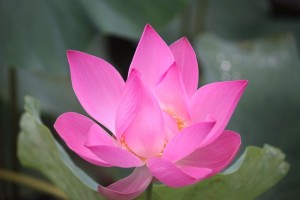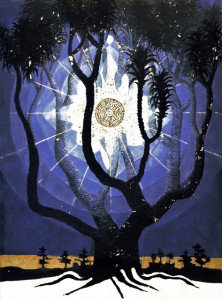
– C.G. Jung
The Vale of Soulmaking
 In a letter to his brother and sister in May 1819, John Keats wrote, “Call this world if you please, ‘The Vale of Soulmaking’, then you will find out the use of this world.” [Norton Anthology of English Literature Fourth Ed. p. 874] This poetic attitude goes to the heart of Jungian Psychology which is essentially concerned with tending the soul. When clients come to me for psychotherapy they often are suffering from sickness of the soul which manifests in a sense of meaninglessness and/or dis-ease. I attempt to help the client tend to the soul’s promptings by paying attention to the ways in which it is attempting to make itself known through dreams, physical and mental illness, relationships, spirituality, trauma and myriads of other ways.
In a letter to his brother and sister in May 1819, John Keats wrote, “Call this world if you please, ‘The Vale of Soulmaking’, then you will find out the use of this world.” [Norton Anthology of English Literature Fourth Ed. p. 874] This poetic attitude goes to the heart of Jungian Psychology which is essentially concerned with tending the soul. When clients come to me for psychotherapy they often are suffering from sickness of the soul which manifests in a sense of meaninglessness and/or dis-ease. I attempt to help the client tend to the soul’s promptings by paying attention to the ways in which it is attempting to make itself known through dreams, physical and mental illness, relationships, spirituality, trauma and myriads of other ways.
Depth Psychology
 The term depth psychology which is often used interchangeably with Jungian Psychology is used to denote that branch of psychology which is concerned with the unconscious and with dreams, therefore, I encourage my clients to record their dreams. Dreams arise from the personal and collective unconscious and by tending to them we make what is unconscious conscious and by doing so we become more whole, or more complete.
The term depth psychology which is often used interchangeably with Jungian Psychology is used to denote that branch of psychology which is concerned with the unconscious and with dreams, therefore, I encourage my clients to record their dreams. Dreams arise from the personal and collective unconscious and by tending to them we make what is unconscious conscious and by doing so we become more whole, or more complete.
The collective unconscious is the realm of the archetypes and the repository of mythology and religions of all ages. In modern times the gods and goddesses of antiquity are experienced as archetypes (overarching themes and patterns of behavior) and by identifying the archetypes as they arise in dreams we attempt to find the god in the disease because as Jung said, “To serve a mania is detestable but to serve a god is full of meaning.” Thus, as the symbols arising from this realm become assimilated into the ego they bring forth meaning and healing.
Individuation

Image from The Red Book by C.G. Jung
The psyche (soul) is organic in nature, and like a plant is naturally oriented towards growth and development and fulfillment of its purpose. The plant’s natural movement is both upwards towards the sun where it receives warmth and light, and downwards into the earth where it maintains a connection with its maternal source and receives life giving nutrients.
As the upward movement of the plant is towards the sun so the upward movement of the psyche is directed towards mind or spirit, while the downward movement is directed towards body and matter. Both movements are necessary for the plant’s growth and development and fulfillment of its purpose. Likewise, both movements are necessary for the growth and development of the psyche, and under normal circumstances it is likely that a plant will fulfill its purpose. The human psyche’s ability to fulfill its purpose, however, is a little more difficult to achieve. This is because the human psyche is channeled and molded to a large degree by parental rules and societal norms which may have no absolute validity in the development of the uniqueness of the individual.
Jung believed that in order to truly become ourselves it is necessary to undertake the journey of individuation where we learn to differentiate ourselves from collective values and become unique individuals in our own right and thus fulfill our true purpose in life.
Jung used the term individuation to denote the process by which a person,”…becomes himself, whole, indivisible and distinct from other people or collective psychology“. (Samuels, Shorter & Plaut, p. 76) The journey of individuation is analogous to the hero’s journey in which the hero descends into the underworld and after undergoing tests and trials returns with the treasure of great price namely the true self.
The World Within – C.G. Jung in His Own Words
